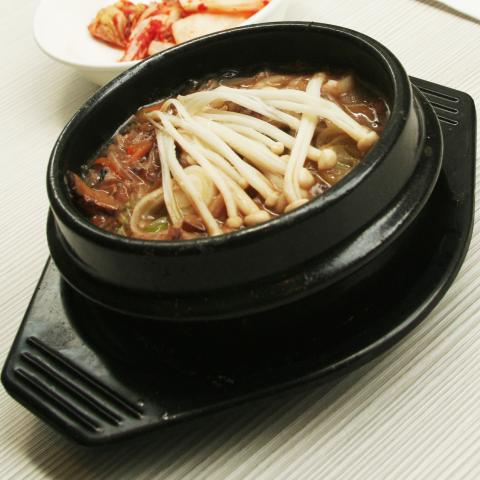
There are three main word classes in the Korean language: pure Korean words, Sino-Korean words, and foreign words. The foreign words can be broken down further into loanwords and Konglish.
Konglish refers to words taken directly from the English language and used in Korean. These words are often used with a different meaning than that of the original word, or have a Koreanized pronunciation. Examples include:
- 바나나 (banana) – “banana”
- 뉴욕 (nyeuyok) – “New York”
In this article, you’ll learn more about Konglish along with other commonly used English words in the Korean language. Let’s get started!
 Table of Contents
Table of Contents
- Introduction to Konglish
- A Brief List of Konglish Words
- List of Loanwords
- English Words Derived from Korean
- How KoreanClass101.com Can Help With Your Korean Learning
Introduction to Konglish
Koreans use many English words every day, but foreigners struggle to understand 콩글리시 (Konglish) because the original meanings of the English words are altered and translated differently in Korean. Many English speakers are puzzled by Konglish because the words do sound English, but they do not exist in the English language and have different meanings.
Here are some examples of Konglish:
- 리모콘 (rimokon) – “remote control”
- 사인 (sain) – “signature”
- 아파트 (apateu) – “apartment”
- 슈퍼 (syupeo) – “supermarket’
- 셀프 (selpeu) – “self-service”

A Brief List of Konglish Words
Now that you’ve learned what Konglish is, you’re ready to dive in! In this section, we’ll introduce the most commonly used Konglish words in Korea.
1) 레포츠 (reportseu) – “leisure” and “sports”
- English meaning: Combination of “leisure” and “sports”
- Korean meaning: The sports that are considered luxurious in Korea
Example
레포츠의 종류는 많아요.
Repocheuui jonglyuneun mannayo.
“There are many kinds of leisure activities.”
예를 들면 승마, 골프, 산악자전거, 카누, 패러글라이딩 등등이 있어요.
Yereul deulmyeon seungma, golpeu, sanakjajeongeo, kanu, paereogeullaiding deungdeungi isseoyo.
“Examples include horse riding, golfing, mountain biking, canoeing, paragliding, and so on.”
2) 리조텔 (lijotel) – “resort” and “hotel”
- English meaning: Combination of “resort” and “hotel”
- Korean meaning: Resort and hotel
Example
부산에 괜찮은 리조텔 찾아보자.
Busane gwaenchaneun rijotel chajaboja.
“Let’s find a good resortel in Busan.”
설악산 리조텔 특가
seoraksana rijotel teukga
“Seoraksan Resortel Deals”
3) 셀카 (selka) – “self” and “camera selfie”
- English meaning: Selfie
- Korean meaning: To take a picture of yourself
Note that selka came from “self” and “camera.”
Example
야, 셀카 같이 찍자!
Ya, selka gat-i jjigja!
“Hey, let’s take a selfie!”
4) 매스컴 (maseukom) – “mass media”
- English meaning: “Mass communication” and “mass media”
- Korean meaning: Mass communication
Example
매스컴이 사회에 미치는 영향
maeseukeomi sahoee michineun yeonghyang
“the impact of media on society”
5) 아르바이트 (areubaiteu) – “part-time job”
- Meaning: “Job” and “work”
- Korean meaning: A part-time job, such as at a supermarket or restaurant
Note that areubaiteu comes from the German word “Arbeit,” and is influenced by the Japanese derivative of this word (arubaito).
Example
어디가?
Eodiga?
“Where are you going?”
나 7시부터 아르바이트 있어서 가야돼.
Na ilgopsibuteo aleubaiteu iss-eoseo gayadwae.
“I need to go because I have work from seven p.m.”
6) 호치키스 (hochikiseu) – “stapler”
E.H. Hotchkiss is the name of a stapler-making company, which is why Koreans call staplers 호치키스 (hochikiseu), or “hotchkiss.”
Example
호치키스 사고 싶어요.
Hochikiseu sago sipeoyo.
“I want to buy a stapler.”
7) 아이쇼핑 (aishopping) – “window shopping”
“Eye shopping” is the Koreanized word for “window shopping,” and these two words have the same meaning.
Example
쇼핑하고 싶은데 돈이 없네.
Syopinghago sipeun de doni eomne.
“I want to go shopping, but I’m broke.”
그럼 아이쇼핑하러 가자!
Geureom aisyopinghareo gaja!
“Let’s go window shopping then!”
8) 콘센트 (konsenteu) – “electrical outlet”
- English meaning: ‘Consent’ is a Konglish word referring to an outlet/socket/power point.
- Korean meaning: Electrical outlet
Koreans also call electrical outlets 돼지코 (dwaejiko), meaning “pig nose,” because outlets resemble the nose of a pig.
Example
호주 콘센트는 한국이랑 다르지?
Hoju konsenteuneun hangugirang dareuji?
“The Australian outlet is different from the Korean one, right?”
응 달라.
Eung dalla.
“Yes, it’s different.”
9) 노트북 (noteubuk) – “laptop”
- English meaning: “Laptop”
- Korean meaning: It is a combination of the words “note” and “book.” In Korea, the word “notebook” refers to a “laptop.”
Example
노트북 갖다줄래?
Notubuk gatdajullae?
“Can you pass me my laptop?”
자 여기.
Ja yeogi.
“Sure, here you go.”
아니, 공책말고, 노트북!
Ani, gongchaekmalgo, noteubuk!
“No, I meant a notebook (laptop), not a notebook!”
아. 응 미안.
A. Eung mian.
“Ah, sorry.”
Other Konglish Words
- 헬스 (helseu) – “health club” / “fitness center”
- 클래식 (keullaesik) – “classical music”
- 탤런트 (taellenteu) – “TV actor”
- 컨닝 (cunning) – “cheating”
- 샤프 (syapeu) – “mechanical pencil”
- 핸들 (handeul) – “steering wheel”

List of Loanwords
In addition to Konglish, there are several English loanwords in the Korean language. These are words taken directly from English without translation; they mean the same thing as their English counterparts, but have Koreanized spelling and pronunciation.
| Loanword | Romanization | Meaning |
| 사우나 | sauna | sauna |
| 토크쇼 | tokeusyo | talk show |
| 블로그 | beullogeu | blog |
| 블로거 | beullogeo | blogger |
| 카메라 | kamera | camera |
| 아이스크림 | aiseukeurim | ice cream |
| 키스 | kiseu | kiss |
| 오렌지 | orenji | orange |
| 주스 | juseu | juice |
| 초콜릿 | chokolet | chocolate |
| 케이크 | keikeu | cake |
| 훌라후프 | hulaheupeu | hula hoop |
| 라디오 | radio | radio |
| 게임 | geim | game |
| 넥타이 | nektai | necktie |
| 노트 | noteu | note |
| 뉴스 | nyuseu | news |
| 달러 | dalleo | dollar |
| 메뉴 | menyu | menu |
| 카드 | kadeu | card |
| 쇼핑백 | syopingbaek | shopping bag |
| 버스 | beoseu | bus |
| 샤워 | syaweo | shower |
| 비디오 | bidio | video |
| 스트레스 | seuteureseu | stress |
| 스포츠 | seupocheu | sports |
While many English loanwords in Korean relate to food, sports, and shopping, there is also a wealth of loanwords related to technology. To learn more about these words, visit the following pages on KoreanClass101.com:

English Words Derived from Korean
While there are numerous English words used in Korean, this language and culture exchange goes both ways! Several Korean words have entered the English language and are now used on a daily basis in English-speaking countries. Here are just a few examples.
1) 먹방 (meokbang)
A meokbang is an online broadcast in which a host consumes large quantities of food while interacting with the audience. The host tries a variety of foods, such as pizza or spicy noodles, in front of a camera.
Example
라면 18봉지 먹방
ramyeon sippalbongji meokbang
“18 bags of ramen meokbang”
치즈 돈까스 20개와 크림스프 먹방
Chijeu donkkaseu isipgaewa keurimseupeu meokbang
“20 cheese cutlet and cream soup meokbang”
2) 재벌 (jaebeol)
Chaebol refers to a conglomerate business entity. This word appears a lot in Korean dramas.
Example
저기 있는 남자 재벌이래!
Jeogi itsneun namja jaebeol-ilae!
“The man over there is a chaebol!”
3) 비빔밥 (bibimbap)
You may have heard of—or even tried—this dish already. Bibimbap means “mixed rice,” and there are several varieties of this dish, including some vegetarian options.
The most popular type is 돌솥비빔밥 (dolsotbibimbap), which means “mixed rice in a (hot) stone pot.” The rice is placed inside a stone pot along with vegetables, meats, and egg. The pot is then placed over a fire so that the food is sizzling hot when served. Most service staff will warn you that the pot is very hot and should not be touched until it cools.
Example
비빔밥 종류가 너무 많아서 못 고르겠어!
Bibimbap jongnyuga neomu manaseo mot goreugesseo!
“There are so many types of bibimbap, so I can’t choose!”
돌솥비빔밥이 제일 맛있어. 먹어봐.
Dolsotbibimbabi jeil masisseo. Meogeobwa.
“Dolsot Bibimbap is the best. Try it. ”
4) 태권도 (taegwondo)
Taekwondo is a Korean martial art that emphasizes head-height kicks, jumping spinning kicks, and various kicking techniques for above the waist. Taekwondo practitioners wear a uniform called 도복 (dobok), which is a white-colored uniform with a belt tied around the waist. There are different-colored belts that correspond to one’s skill level.
Example
태권도 시작한지 얼마 되지 않은 사람은 하얀 벨트를 매요.
Taegwondo sijakhanji eolma doeji anneun sarameun hayan belteuleul maeyo.
“People who have just started Taekwondo wear white belts.”
태권도를 오래한 사람은 검은 벨트를 매요.
Taegwondoreul oraehan sarameun geomeun belteureul maeyo.
“People who are experienced in Taekwondo wear black belts.”
5) 불고기 (bulgogi)

Bulgogi means “fire meat,” and it refers to a dish of marinated slices of beef grilled on a barbecue with different kinds of vegetables. Sirloin, rib eye, and brisket are the most common ingredients for this dish.
Example
외국인이 좋아하는 한식은 무엇이 있을까?
Oegugini joahaneun hansigeun mueosi isseulkka?
“What Korean foods do foreigners like?”
고기 좋아한다면 불고기 추천!
Gogi joahandamyeon bulgogi chucheon!
“I recommend Bulgogi if they like meat!”
6) 소주 (soju)
Soju is a Korean alcoholic beverage that comes in a green glass bottle. This is the most popular alcoholic drink in Korean restaurants and it goes well with grilled meat. In recent years, the company that produces Soju beverages has released a variety of flavors—such as fruit-flavored Soju—to meet consumers’ needs.
Example
소주에도 종류가 많다는거 알고 있었나요?
Sojuedo jongnyuga mantaneungeo algo isseonnayo?
“Did you know that there are many types of Soju?”
네, 최근에 과일맛 소주도 나왔더라구요.
Ne, choegeune gwailmat sojudo nawatdeoraguyo.
“Yes, there was a fruit-flavored Soju recently.”
7) 갈비 (galbi)
갈비 (galbi), which means “ribs” in Korean, is one of the most famous Korean dishes. It’s usually made with beef short ribs.
Example
갈비 1인분 주세요.
Galbi irinbun juseyo.
“I’d like to order one portion of galbi, please.”
8) 한복 (hanbok)
Hanbok is a traditional Korean clothing item that Koreans wear on special occasions such as Harvest Day, New Year’s Day, and so on.
Example
한복 너무 이쁘다. 나도 입어보고 싶어.
Hanbok neomu ippeuda. Nado ibeobogo sipeo.
“Hanbok is so pretty. I want to wear it too.”
그래? 광화문 가자! 거기서 한복 렌탈해주는곳 많아!
Geurae? Gwanghwamun gaja! Geogiseo hanbok rentalhaejuneungot manna!
“Yeah? Let’s go to Gwanghwamun then! There are many places where you can rent Hanbok!”
Other English Words Derived from Korean
- 고추장 (gochujang) – “spicy pepper paste”
- 막걸리 (makgeolri) – “rice wine”
- 합기도 (hapgido) – “Korean martial art”
- 한글 (hangeul) – “Korean language”
- 김밥 (gimbap) – “Korean seaweed rice roll”
How KoreanClass101.com Can Help With Your Korean Learning
In summary, we’ve explained the definition of “Konglish” and introduced you to some Konglish examples and loanwords. Which of these Konglish words is your favorite? Let us know in the comments! We look forward to hearing from you.
You can continue learning about Konglish and the Korean language on the following pages:
- Korean + English = Konglish! Can You Guess These Words?
- Learn the Korean Alphabet, Hangul, from A to Z!
And of course, KoreanClass101.com provides so much more for our learners. From free resources and vocabulary lists to video and audio lessons for learners at every level, there’s so much in store for you. Create your free lifetime account and start learning Korean like never before with our fun and effective materials!










